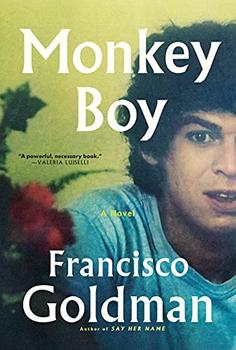Summary | Excerpt | Reviews | Beyond the Book | Readalikes | Genres & Themes | Author Bio

It was only about a year ago, when I read an essay about Natalia Ginzburg and her youth as an Italian girl in Turin with a Jewish last name and Catholic mother, a girl from a stalwartly anti-Fascist family, longing to fit in with her Catholic schoolmates, almost all from Fascist families, that I understood my own longing to fit in was normal enough, as was the loneliness of not fitting anywhere. But it's okay to be always an outsider. Natalia wrestled with that kind of sadness and exclusion, which she privately referred to as "pathos ebraico," long into her adulthood in ways that fed her genius.
Once, when Gero Tripp and I were in Spain on a brief working vacation with Teresa Fijalkowski—she was editing both our books that summer and had invited us to the house she was renting near Bilbao— Gero joked that whatever country I went to, the people from that country always saw me as being of whatever brown ethnic group was most despised there. In Spain I was called moro everywhere I went. Even in Guatemala, a husky blondish drunk, in the Bar Quixote, insulted me as a morenito de mierda and took a wild swing at my head. On the Paris metro a group of working-class young thugs in tracksuits followed me off the train car imitating cartoon Arab music. Only back in November, in another bar on the outskirts of Carroll Gardens where I'm friendly with Deandra the bartender, on a night when I was the last customer, three small-time wise guy clichés right out of Goodfellas came in and almost right away started in on me: Hey, you Rican? You Nuyorican? Hey Rican, don't make like you don't fucking hear me. On and on like that. I was sitting down at the very end of the bar. Deandra came over and said in a lowered voice: Don't say anything, don't move, I'm going to phone the police. Like I was about to say anything. But they must have heard her say police, because they drank up and snaked right out the door.
Once, in Elaine's, that famously clubby Upper East Side celebrity bar where Teresa used to ask me to meet her sometimes—this was in the days when she was first publishing me, when I used to come up from Central America for a while, or in the years right after—I was walking back to our table from the men's room when I saw veering toward me that always-wasted Brit with hyphenated aristocratic surnames, a friend of Teresa's and her friends from that downtown New York nightlife scene she liked, I don't even know what to call him, a writer-socialite? He drunkenly grabbed me by the shirtfront and said, I hate you sweaty, swarthy immigrant people in your loud shirts. I didn't punch him, though I was still of an age when I think it's normal and right to punch an asshole who gets up in your face and speaks to you that way. I was too aghast and stunned to react, too intimidated by the setting of New York glamour and power. My shirt was kind of loud, I wished I hadn't worn it. He fixed me with a squinting look of pucker-faced dismissal and stumbled on. When I got back to our table, I told Teresa and her friends what had just happened. Oh, he's just like that, they said. Don't pay any attention to him. That's just his irreverent sense of humor, Jimmy loves to play the bad boy. Jimmy was what they called him. Sure, I get it, okay, yeah. Later Teresa said, I'm sorry that happened, Frank. It must be hurtful to be singled out like that. And I said, What hurts is that I didn't smash his fucking face in. I never wanted to be someone closed off and controlled by racial defensiveness, that seemed especially inappropriate for someone like me anyway, racially mixed, nothing in particular, no matter what anyone else wanted to see in me. But that insult festered inside me for years, more than other similar slurs have. A depraved white aristo from England insulting me as an immigrant. Too much. Teresa doesn't come from a fancy background, though people always assume she does. She's working-class Detroit, went to Harvard, Oxford. When at a publishing house Christmas party Teresa told me that the Brit from Elaine's had been stabbed in the gut by a transsexual prostitute and was in the hospital, the words just came out: Good, I hope he dies. Teresa was horrified. Whatever else, he was her friend. I apologized, though couldn't help adding that I hoped the transsexual had a good lawyer. I'm sure she has her side of the story, I said.
Excerpted from Monkey Boy © 2021 by Francisco Goldman. Reprinted with the permission of the publisher, Grove Press, an imprint of Grove Atlantic, Inc. All rights reserved.




A library is a temple unabridged with priceless treasure...
Click Here to find out who said this, as well as discovering other famous literary quotes!
Your guide toexceptional books
BookBrowse seeks out and recommends the best in contemporary fiction and nonfiction—books that not only engage and entertain but also deepen our understanding of ourselves and the world around us.